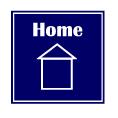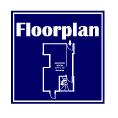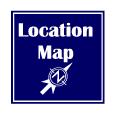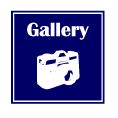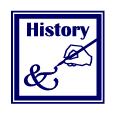This property is being handled by
Foxtons' Sloane Square Office
+44 (0)20 7951 9000
Barton Street was created by Barton Booth in 1710. The street is tucked away behind Westminster Abbey and the Palace of Westminster (in fact from the top floor, the you see the tower at the corner of the House of Lords). The house is within the Division Bell area (the bell that calls MPs and peers to vote). Indeed, at one time, the house itself was wired up to have its own Division Bell. Public transport is on the doorstep; the nearest Tube stations are Westminster, St James's Park, Victoria and Pimlico. Victoria also provides London buses and countrywide coaches, along (of course) with train services. The house is 10 minutes from Waterloo International (by cab), and 15 minutes by cab from Knightsbridge and the City…
BARTON STREET: POLITICS & MEDIA
Barton Street and Cowley Street have for many years provided London bases for, amongst others, political figures and media pundits. Being less than five minutes' walking distance of Parliament for peers or MPs, and handy for the television killing ground of St Stephen's Green, it would be fair to say that the street does attract the attention of representatives of the people. Margaret Thatcher borrowed Lord MacAlpine's house in neighbouring Great College Street during her term of office. John Major headquartered his leadership campaign in Cowley Street. More recently, the Liberal Democrats have chosen to locate their head office in Cowley Street.
The street has a blue plaque to mark the fact that, T.E. Lawrence (Lawrence of Arabia) lived in Barton Street for a while. Apparently whilst there he attracted attention by climbing into his own house through the windows rather than using the front door. On the corner was to be found at one time the stern figure of Lord Reith, Director General of the BBC at the height of the public service of broadcasting. Oddly enough, his house had once been a pub. Sir John Gielgud lived in Cowley Street for many years, with his parrot keeping a watchful eye on passing pedestrians from his window for much of the time. Sir David English, famous as Editor of the Daily Mail, also had a house here. He was not the first journalist to inhabit the street. In 1909, F.S.A. Lowndes, then Editor of The Times, moved into the street. His wife Marie, the only sister of Hilaire Belloc, called the place "the real Westminster". Mrs Belloc Lowndes noted in her book, The Merry Wives of Westminster: "I had not been long in Barton Street, however, before I became aware of what changes can take place in even a very quiet part of a great town within a few years. For one thing we found that the four little streets, of which Barton Street is one, were attracting the attention of Members of Parliament and important government officials."
As the population grew in the early 19th century, the ecclesiastics built St John's Smith Square, a building now used exclusively for classical music concerts. In 1897, Walter Besant wrote: "The houses among themselves pretend to be the cathedral close", and a number of bishops inhabited the houses. And so began the politicisation of this secluded corner behind the Palace of Wetsminster.
FILM, MUSIC AND TELEVISION
The street has some lovely links to film, music and television: the 1950's film, The Pickwick Papers was filmed using No 9 as Sam Pickwick’s house; filming of The Baker Street Sleuth (starring Christopher Plummer as Sherlock Holmes) involved Plummer hanging out of a window in the house opposite no 13; Michael Caine and Ben Kingsley filmed Without a Clue (a Sherlock Holmes comedy) in Barton Street; for the filiming of Winston Churchill: The Wilderness Years, Robert Hardy paced up and down Barton Street; the opening sequence for The Prisoner showed Patrick McGoohan driving his Lotus Seven S II into the Abingdon Street Car Park (which is the car park that is approxminately one minute's walk from the front door where qualifying residents (waiting list allowing) can get a reduced rate (currently £820 p.a. (as at 02.05.04)) for a permanent space; more recently Rowan Atkinson spent hours leaping in and out of his Aston Martin filming for Johnny English; Vaughan Williams lived at No 9; Sir John Gielgud (as mentioned above) lived around the corner in Cowley Street; and finally, the house itself (No 13) was bought by the current owners from the Lester family, whose son Mark Lester who played the title role in Oliver.
BARTON BOOTH
Barton Booth (1681-1733) was not only a property developer, but also an actor. From a good Lancashire family, he was educated at Westminster school (who in fact now own several properties in Barton Street). Booth was supposed to join the church; but in 1698 he ran away from Trinity College, Cambridge, and obtained employment in a theatrical company in Dublin. After two seasons in Ireland he returned to London, at Lincoln's Inn Fields he first appeared as Maximus in Valentinian, and his success was immediate. He was at the Haymarket from 1705 to 1708, and for the next twenty years at Drury Lane. Booth died on the 10th of May 1733, and was buried in Westminster Abbey. His greatest parts, after the title-part of Addison's Cato, which established his reputation as a tragedian, were probably Hotspur and Brutus. His Lear was deemed worthy of comparison with Garrick's. As the ghost in Hamlet he is said never to have had a superior. He also played to perfection the gay Lothario in Rowe's Fair Penitent. Booth married twice; his second wife, Hester Santlow, an actress of some merit, survived him. Santlow, was regarded by many as the leading dance actress of the time. She had also been a former mistress of the famous soldier, the Duke of Marlborough.
On a very frivolous note, there was apparently some speculation at the time that the Barton Street houses were conveniently located for the gentlemen of the Court of St James to disport themselves, within an easy sedan chair ride... And consequently it was claimed by some that Barton Street was an excellent, and acknowledged location for <ahem> amorous rendezvous...
|
Foxtons' Sloane Square Office +44 (0)20 7951 9000

